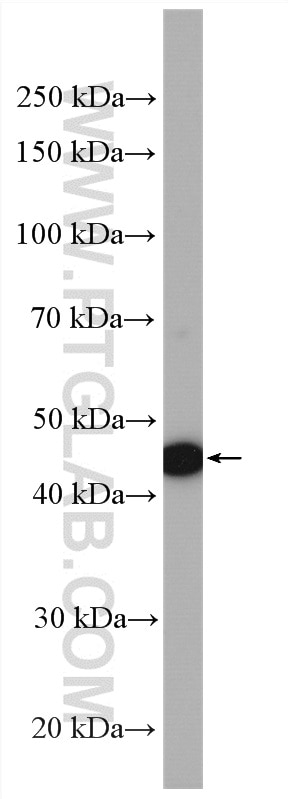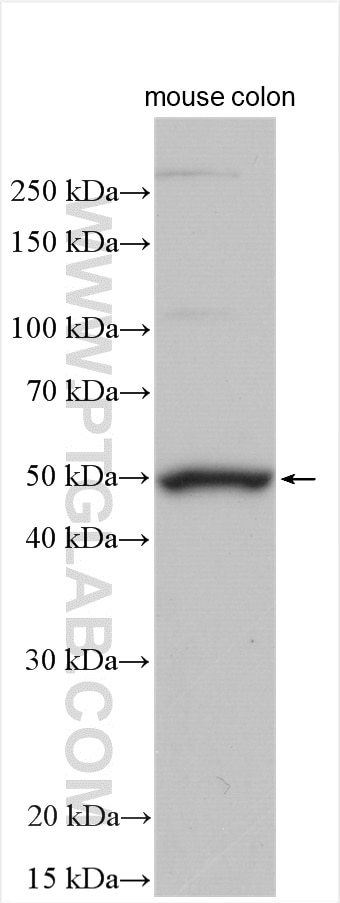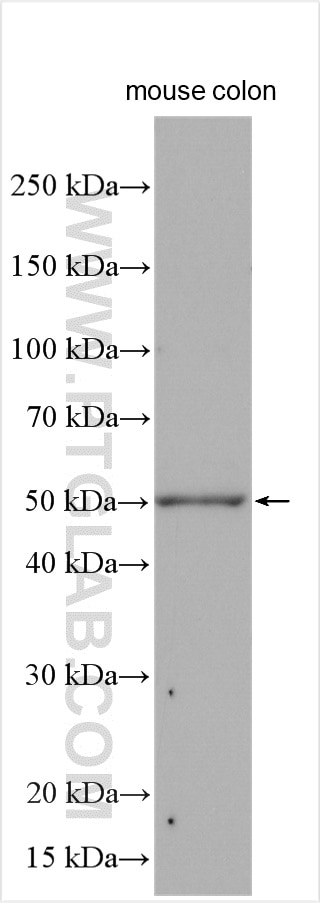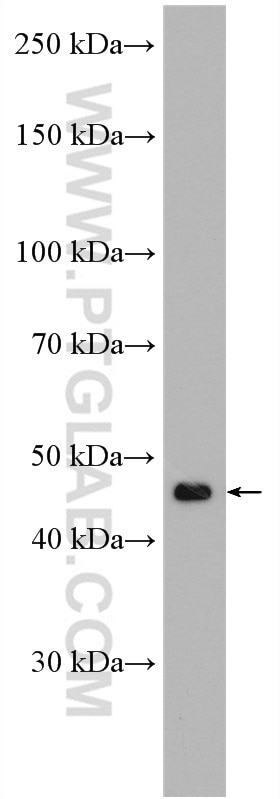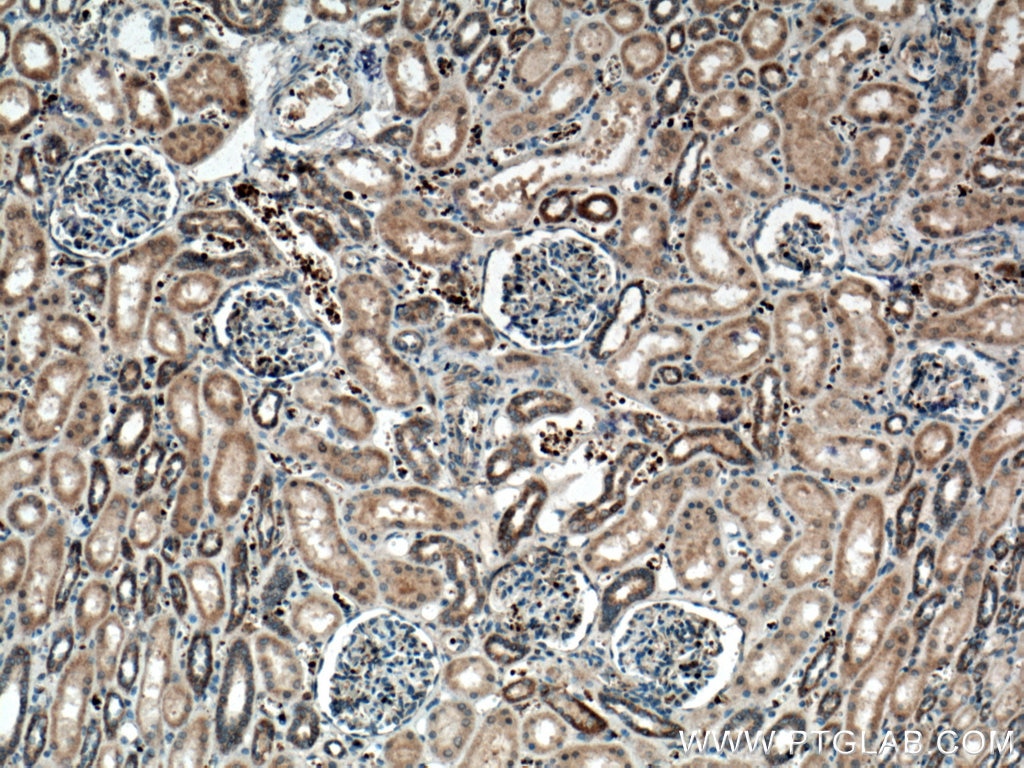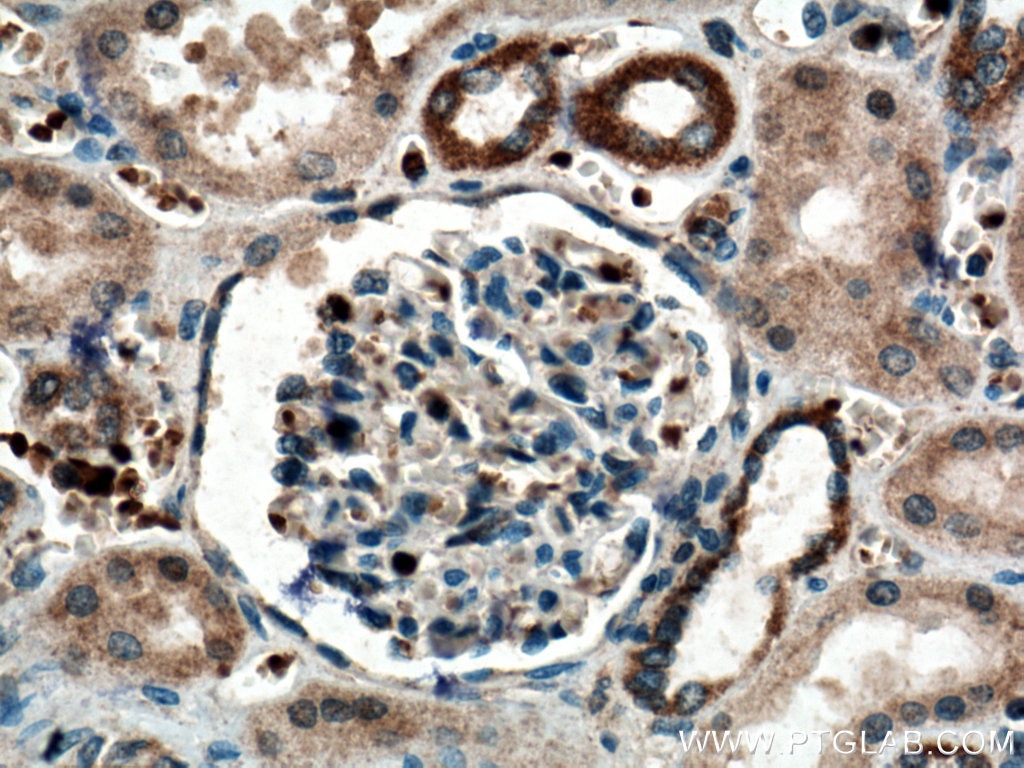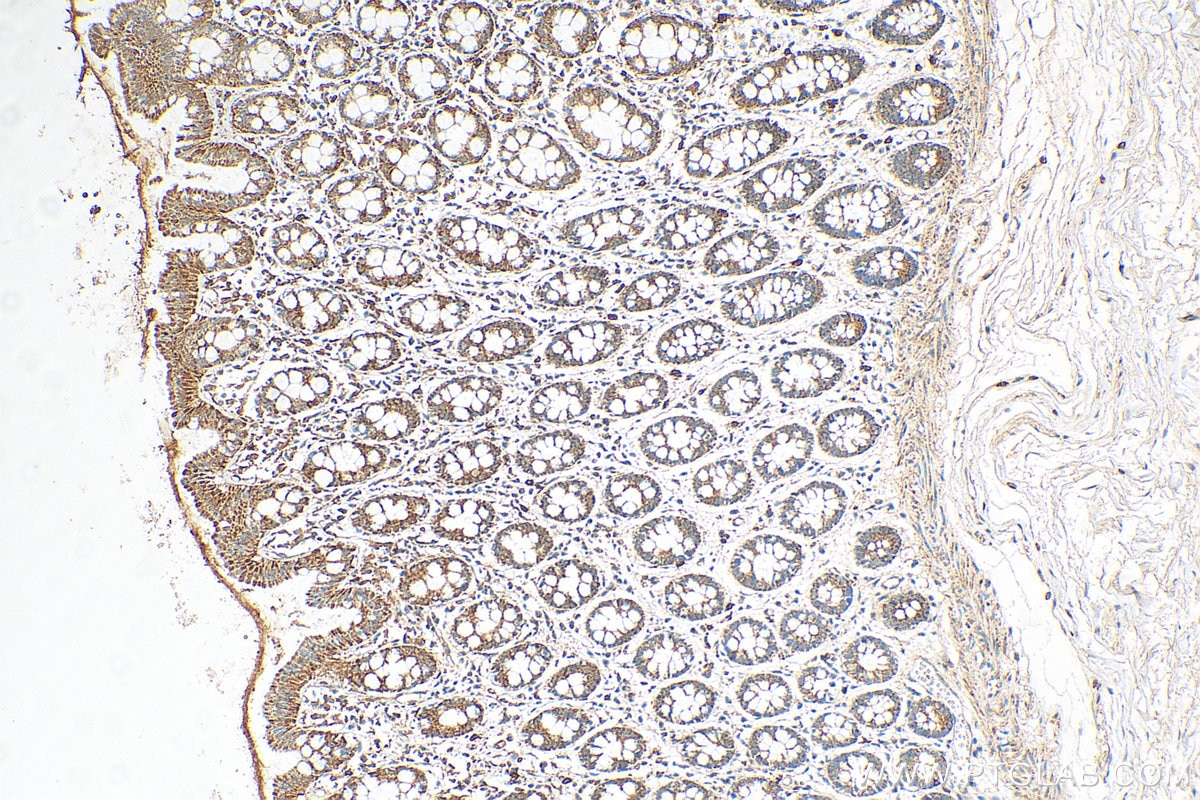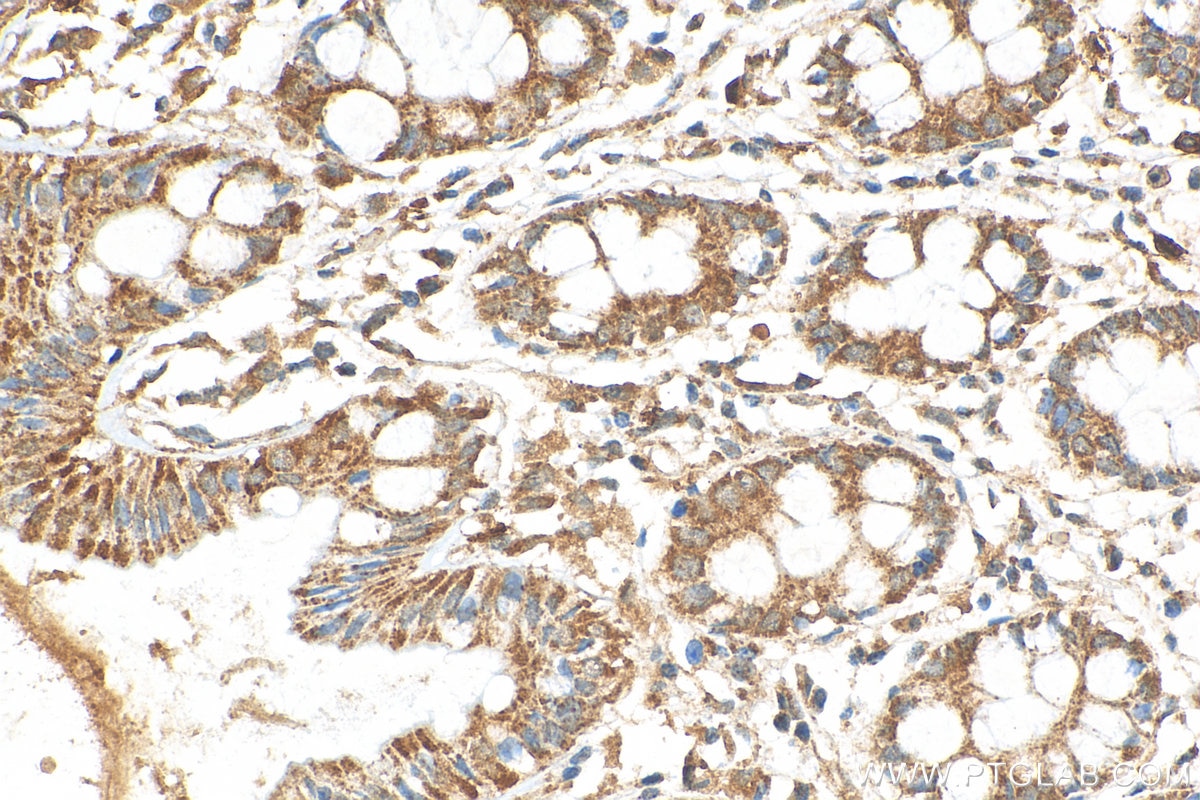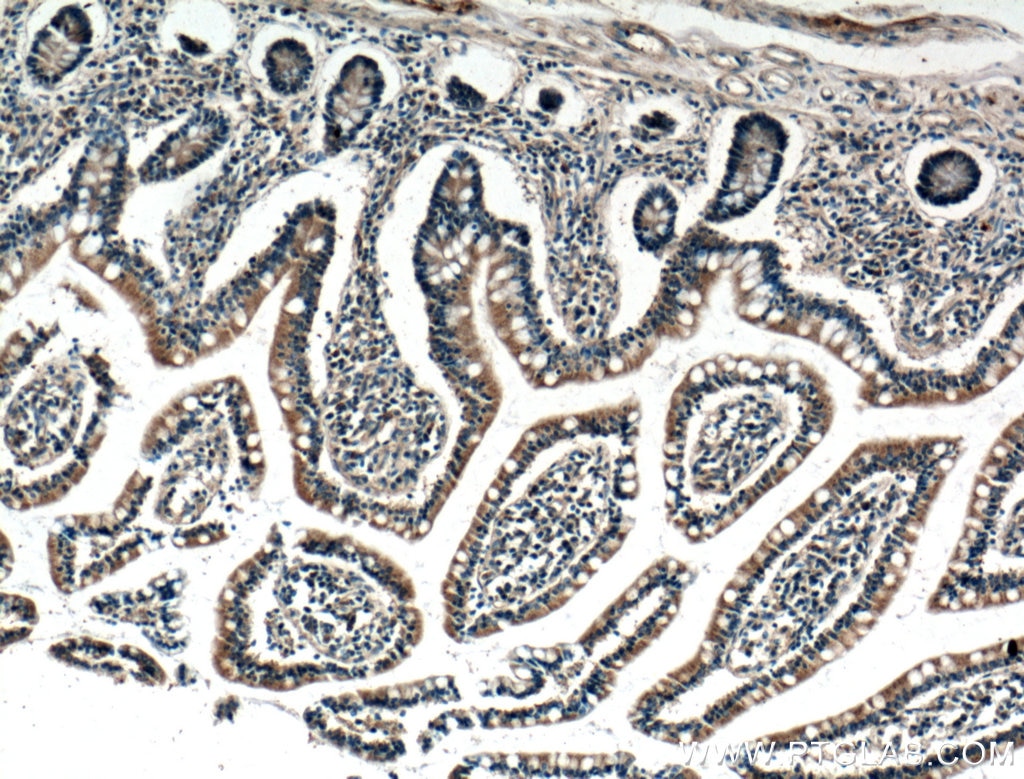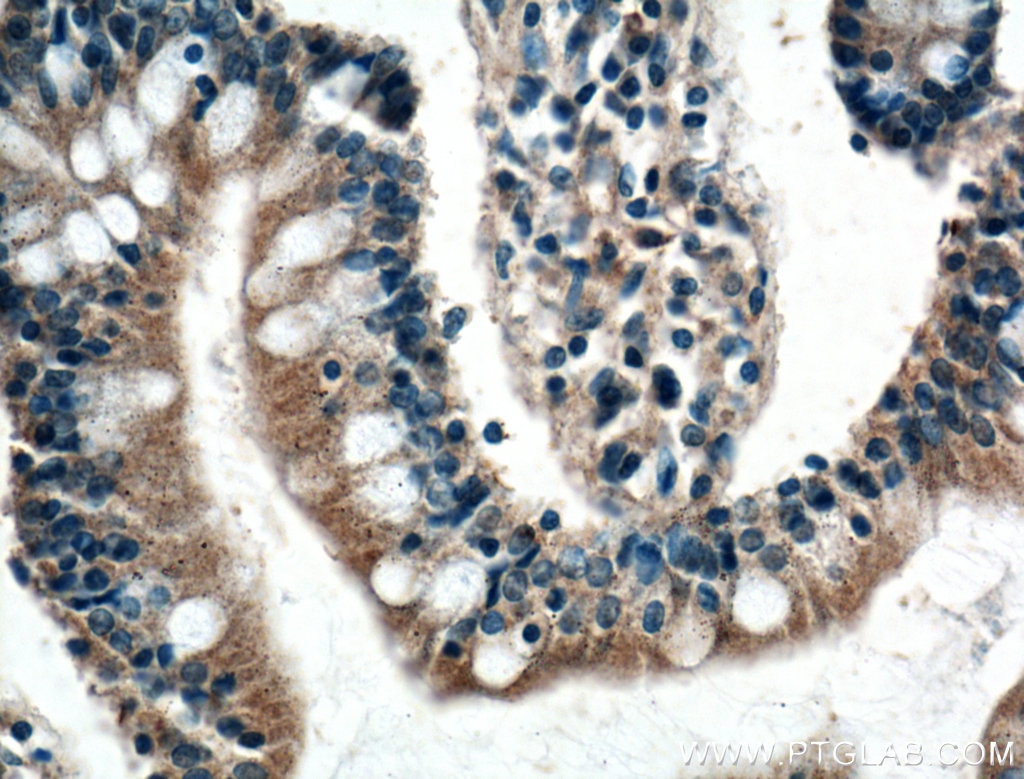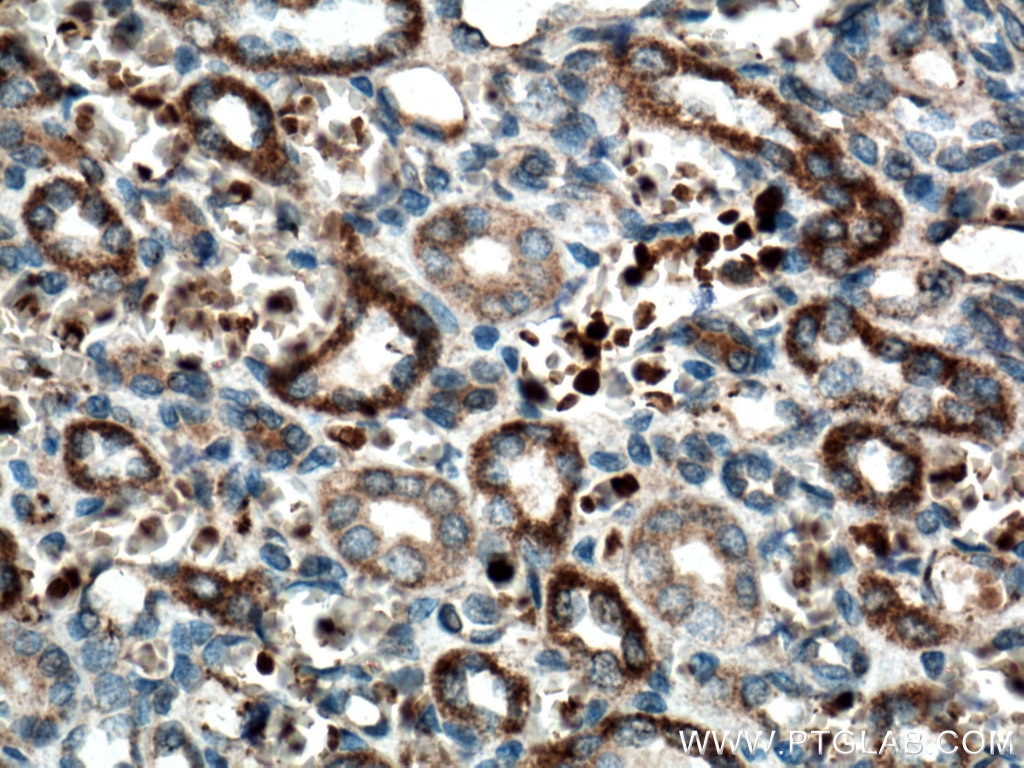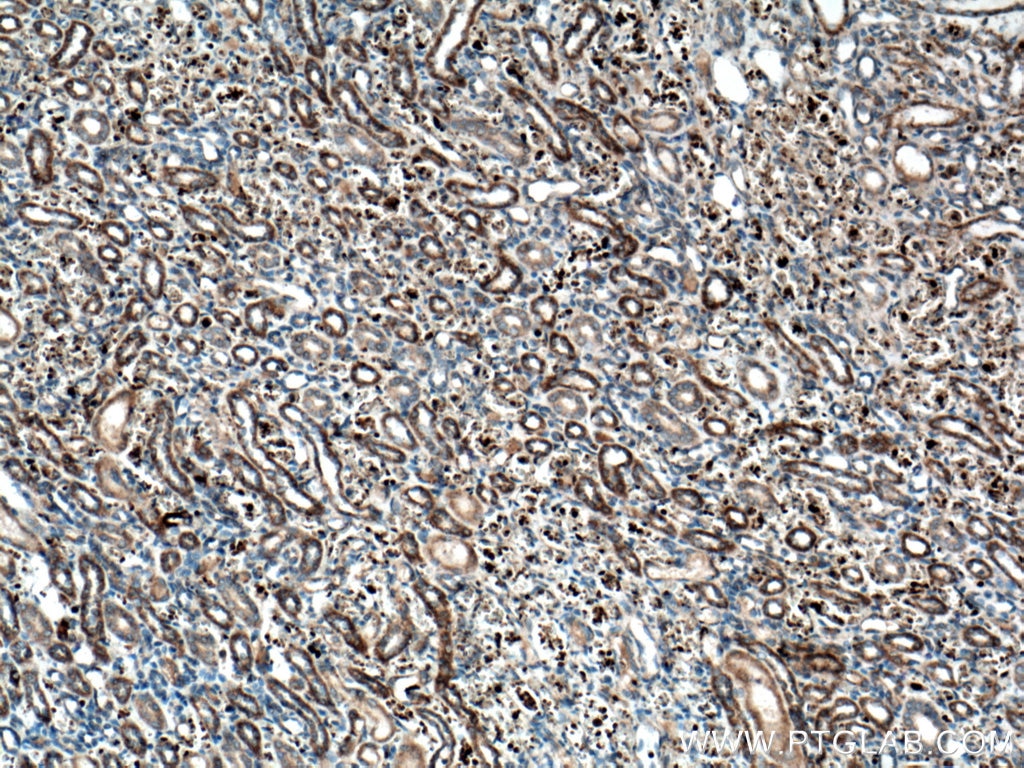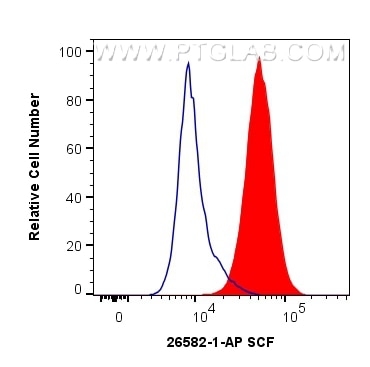Tested Applications
| Positive WB detected in | PC-12 cells, NIH/3T3 cells, mouse colon tissue |
| Positive IHC detected in | human kidney tissue, human small intestine tissue, human colon tissue Note: suggested antigen retrieval with TE buffer pH 9.0; (*) Alternatively, antigen retrieval may be performed with citrate buffer pH 6.0 |
| Positive FC (Intra) detected in | MCF-7 cells |
Recommended dilution
| Application | Dilution |
|---|---|
| Western Blot (WB) | WB : 1:500-1:1000 |
| Immunohistochemistry (IHC) | IHC : 1:50-1:500 |
| Flow Cytometry (FC) (INTRA) | FC (INTRA) : 0.40 ug per 10^6 cells in a 100 µl suspension |
| It is recommended that this reagent should be titrated in each testing system to obtain optimal results. | |
| Sample-dependent, Check data in validation data gallery. | |
Published Applications
| KD/KO | See 1 publications below |
| WB | See 12 publications below |
| IHC | See 5 publications below |
Product Information
26582-1-AP targets SCF in WB, IHC, FC (Intra), ELISA applications and shows reactivity with human, mouse, rat samples.
| Tested Reactivity | human, mouse, rat |
| Cited Reactivity | human, mouse, rat |
| Host / Isotype | Rabbit / IgG |
| Class | Polyclonal |
| Type | Antibody |
| Immunogen |
CatNo: Ag25075 Product name: Recombinant human SCF protein Source: e coli.-derived, PGEX-4T Tag: GST Domain: 28-214 aa of BC074725 Sequence: ICRNRVTNNVKDVTKLVANLPKDYMITLKYVPGMDVLPSHCWISEMVVQLSDSLTDLLDKFSNISEGLSNYSIIDKLVNIVDDLVECVKENSSKDLKKSFKSPEPRLFTPEEFFRIFNRSIDAFKDFVVASETSDCVVSSTLSPEKDSRVSVTKPFMLPPVAASSLRNDSSSSNRKAKNPPGDSSLH Predict reactive species |
| Full Name | KIT ligand |
| Calculated Molecular Weight | 273 aa, 31 kDa |
| Observed Molecular Weight | 30-45 kDa |
| GenBank Accession Number | BC074725 |
| Gene Symbol | SCF |
| Gene ID (NCBI) | 4254 |
| RRID | AB_2880561 |
| Conjugate | Unconjugated |
| Form | Liquid |
| Purification Method | Antigen affinity purification |
| UNIPROT ID | P21583 |
| Storage Buffer | PBS with 0.02% sodium azide and 50% glycerol, pH 7.3. |
| Storage Conditions | Store at -20°C. Stable for one year after shipment. Aliquoting is unnecessary for -20oC storage. 20ul sizes contain 0.1% BSA. |
Background Information
Stem cell factor (SCF) also known as mast cell growth factor, steel factor, and kit ligand, is a hematopoietic growth factor. SCF is a critical protein with key roles in the cell such as hematopoiesis, gametogenesis and melanogenesis. SCF activates multiple signal pathways by binding with c-kit receptor. SCF and its receptor, c-kit ligand (KL), are up-regulated in particular human malignancies including gastrointestinal stromal tumor (GISTs), breast cancer, hematopoietic cell, myeloid leukaemia, and glioma. The SCF/c-KIT system also plays a relevant role in cell fate decision, and its activity is widely known to control cell proliferation, differentiation, survival and apoptosis. SCF is a 35 to 45 kDa monomeric glycoprotein.
Protocols
| Product Specific Protocols | |
|---|---|
| FC protocol for SCF antibody 26582-1-AP | Download protocol |
| IHC protocol for SCF antibody 26582-1-AP | Download protocol |
| WB protocol for SCF antibody 26582-1-AP | Download protocol |
| Standard Protocols | |
|---|---|
| Click here to view our Standard Protocols |
Publications
| Species | Application | Title |
|---|---|---|
Food Res Int Prunus persica (L.) Batsch blossom soluble dietary fiber synergia polyphenol improving loperamide-induced constipation in mice via regulating stem cell factor/C-kit, NF-κB signaling pathway and gut microbiota | ||
Int J Mol Sci Increase in Chymase-Positive Mast Cells in Recurrent Pleomorphic Adenoma and Carcinoma Ex Pleomorphic Adenoma of the Parotid Gland. | ||
Int J Mol Sci Increased Chymase-Positive Mast Cells in High-Grade Mucoepidermoid Carcinoma of the Parotid Gland | ||
Am J Physiol Gastrointest Liver Physiol miR-128 participates in the pathogenesis of chronic constipation by regulating the p38α/M-CSF inflammatory signaling pathway. | ||
Exp Ther Med Arctiin alleviates functional constipation by enhancing intestinal motility in mice | ||
Thorac Cancer High expression of KITLG is a new hallmark activating the MAPK pathway in type A and AB thymoma.
|

